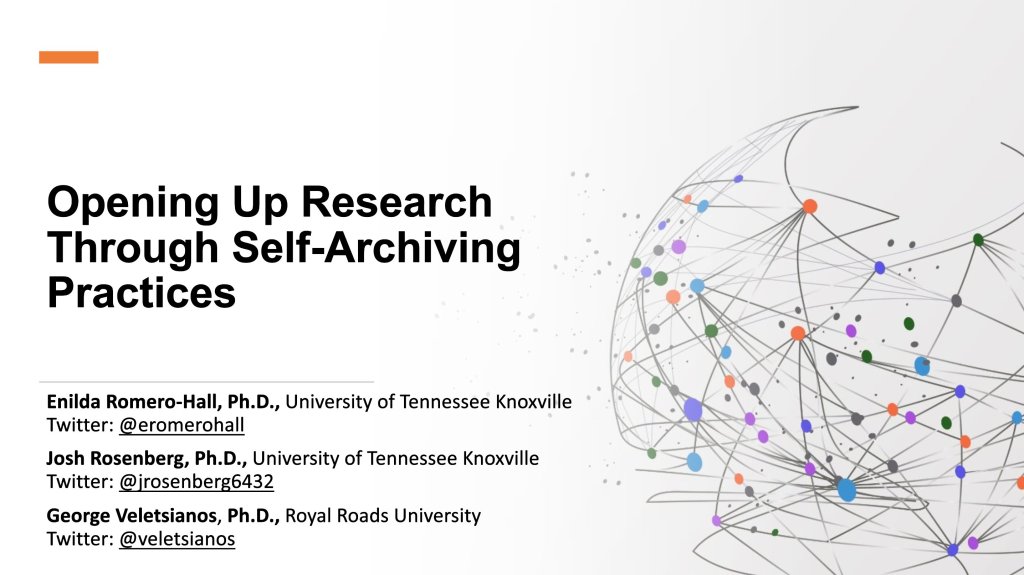What do future learning environments look like? Is online learning “the new normal?” Or, are we back to the “old normal?” What does the “new normal” look like? Never mind concepts of “normal,”… what do learners and faculty imagine future learning environments, technologies, and modalities looking like? Colleagues and I completed and are planning a series of studies around these ideas, bringing together threads in our research that examines online learning, emerging technologies, challenges facing higher education, and speculative methods. We recently published one of these and I am sharing the pre-print below.
When I prompted ChatGPT to generate an image depicting this paper it generated the image below. This image provides an interesting juxtaposition to our findings, because our findings highlight the relative persistence of the status quo and reveal a lack of more radical futures.

Here’s the paper: Veletsianos, G., Johnson, N., & Houlden, S. (2024). How do Canadian Faculty Members Imagine Future Teaching and Learning Modalities? Educational Technology Research & Development, 72(3), 1851 – 1868.. The final version is available at https://doi.org/10.1007/s11423-024-10350-4 but here is a public pre-print version.
Abstract
This study, originally prompted by the impact of the COVID-19 pandemic on educational practices, examined Canadian faculty members’ expectations of teaching and learning modalities in the year 2026. Employing a speculative methodology and thematic analysis, interview responses of 34 faculty members led to the construction of three hypothetical scenarios for future teaching and learning modalities: a hybrid work model, a high tech and flexible learning model, and a pre-pandemic status quo model. In contrast to radical education futures described in the literature, the findings do not depart significantly from dominant modes of teaching and learning. Nevertheless, these findings offer insights into the expectations that Canadian faculty members have with respect to future teaching and learning modalities, the contextual issues and concerns that they face, the use of speculative methodologies in educational technology research, and the potential impacts remote learning trends have on the future of education in Canada.



 Photo by
Photo by 